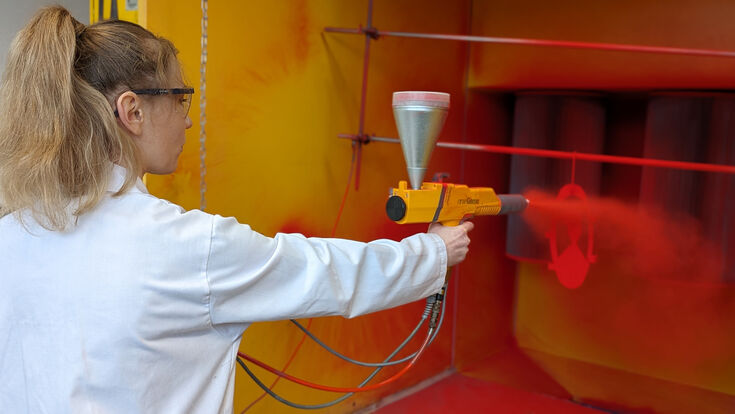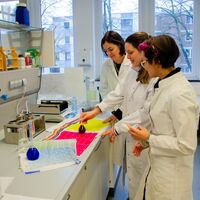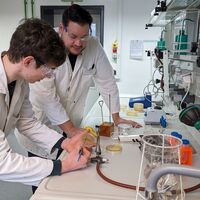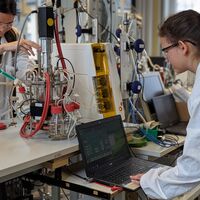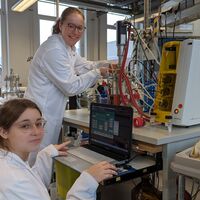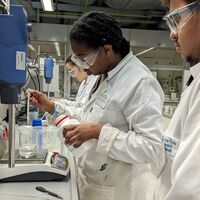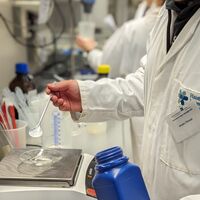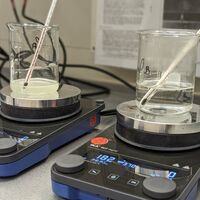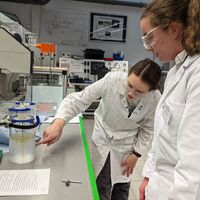How does home-made body lotion feel on the skin? How can a thickener for food or cosmetics be produced microbiologically? And how well does a powder coating last? 37 students from abroad have now investigated these and other questions at the HSNR. The Bachelor's students from European partner universities spent a week researching at the Faculty of Chemistry as part of the international project week. They come from Belgium, the Netherlands and France. In return, around 30 HSNR students gained experience at partner universities in Denmark, Finland, Belgium and France at the same time.
The international guests experimented in the Chemical Catalysis, Technical and Organic Chemistry, Coatings Chemistry and Biotechnology Laboratories - and learned how to use technology that was in some cases completely new to them. Producing lactic acid in their own fermentation laboratory was one of these new experiences. They used a bioreactor to produce lactic acid and investigated its sugar consumption, among other things.
While one group identified unknown microorganisms in a sample as part of an international competition, other international students produced dextran. The natural polysaccharide is often used as a thickener, for example in toothpaste, dressings or creams.
Speaking of creams: how an emulsion is produced was also one of the tasks. The European guests skillfully tried their hand at a rich body lotion with a moisturizing active ingredient and a light version. The respective oil and water phases were sometimes heated and sometimes left at room temperature to see the effect in direct comparison. The pH value and skin feel of the perfumed body lotions were also analyzed.
The students learned more about mixtures of substances in various stirring experiments. For example, glass was mixed as a solid in water (suspending), dye in water (homogenizing) and oil in water (emulsifying). They found the optimum stirring system for each stirring task. Another group produced their own heterogeneous catalyst that can be used to convert carbon monoxide into carbon dioxide.
The guests learned the foundation course in powder coating in the paint chemistry department. In the powder coating booth, which ensures even powder distribution and extraction, they got hands-on and sprayed coat hooks and other surfaces. They then measured the layer thicknesses and tensions and checked whether the powder coating is elastic or flakes off quickly.
All groups were accompanied by HSNR students. One of the students involved in the International Project Week during the current semester break is Max Bernhardt (23) from the Heinsberg district. He is studying chemical engineering: "I do it because I can get to know new people and I find it interesting to exchange ideas with international students in English."
The international project week took place for the third time at the HSNR. In addition to practical experiments, excursions and other activities are also on the agenda. Coordinators Prof. Dr. Michaela Wagner and Prof. Dr. Michael Dornbusch are delighted with the large number of participants: "Internationalization and cooperation are of great importance for today's research and working world. Thanks to this exchange program, our students at The Hochschule Niederrhein have the opportunity to acquire these skills early on in their studies.


